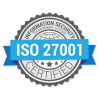Many businesses are turned away from undertaking a telecom audit and seeking cost savings in their more difficult and complex contracts due to the costs and prohibitive factors involved associated to traditional audit processes. Complex contracts, like those in the telecom industry, cover hundreds of different products that can be configured in multiple ways.
With telecom services being an essential utility for businesses, they have a long history of use and many changes have occurred over the years and this has given rise to the telecom expense management industry.
Because of growing enterprise technology and telecom complexity, conducting a full analysis of telecom contracts requires specialist capabilities, cost benchmarking and real-time business intelligence analytics. According to a recent report by Aruba Networks and Microsoft “In 2018, 57% of businesses adopted IoT in some way. By 2022, the figure could rise to 94%“
This makes having a deep domain knowledge of how complex technology telecom contracts are structured and an understanding of how to track their value implementation across all business operations is critical.
Specialists tasked with this analysis are often not a part of the business itself and are not aware of historical changes and supplier relationships, typically due to the high level of invoice inaccuracies, predictive modelling and predictive analytics is near on impossible for many companies in relation to technology and telecoms spend.
Because of this, the specialist must work closely with stakeholders within the business to understand the history correctly, before they can think about how an organization could optimize their contract value and reduce contract value leakage.
For companies auditing millions in annual technology and telecoms spend, this is a highly time-consuming and resource intensive activity. Specialist third-party time is expensive, and these projects can take weeks if not months to complete with sufficient accuracy and detail.
Auditing services of the past
It has become common practice for these projects to be run on a “share of savings” basis, which makes the cost of entry more attractive.
The reality of this approach is still very expensive, costing between 30-60% of total savings, with the actual savings not always clearly trackable in the months following the audit. This is routinely the case regardless of whether the provider is a consultancy or a software company.
It is important to note that this kind of audit is only a one-off activity, making it even more difficult to track the real value of invoice savings. The specialist is not going to be there to track your invoices month after month, making it impossible to know whether you have truly achieved the savings that were forecast by the audit.
Ongoing monitoring is crucial because invoices can fluctuate, inaccuracies can arise, and various features can change.
In many cases, to “prove” a savings figure the third-party specialist will simply swap to suppliers that promise lower rates than before, rather than carefully analyzing existing services. This then requires disruptive, unnecessary technology migrations, alongside numerous administration tasks.
This then leaves room for unknowns regarding the new supplier’s service, such as whether it will at least be of an equivalent standard to the previous one. The inability of traditional providers to track the savings they forecast often prevents clients from even starting projects in the first place.
Taking the factors discussed above into consideration, this area is ripe for technology disruption.
Outdated, expensive processes are now making way for a technology-driven process with testable outcomes, combined with a permanent fact base.
In the case of the Thinking Machine Systems solution, our Knowledge Model adds intelligence to future decisions, drastically reducing total costs and increasing service quality. At Thinking Machine
Systems, we recognized that while some of the hurdles can be solved with existing technology, a new system design is required to fully tackle the problem.
Overcoming the hurdles for better business decisions
An immediate challenge to consider when auditing invoices is the need for PDF statements to be transformed into a common analytics format. This is an extremely challenging task when statements can contain hundreds of thousands of line items, spanning multiple suppliers.
Once a common analytics format has been established, key ordering, product and service-related data can be identified correctly. Effectively overcoming this hurdle calls for a technology solution, and AI extraction capabilities are revolutionizing the process.
Contract processing also presents a challenge, particularly in terms of identifying pricing tables and commercial terms relevant to specific products and services.
Like with invoices, a technology solution is required to optimize the process of transforming relevant contract items into a common analytics format. The Thinking Machine Systems solution breaks this technology-enabled process down into contract parsing, extraction, searching, and standardization.
Once the challenges associated with contract and invoice processing have been tackled, analytics should be the next consideration. It is traditionally arduous and time-consuming to link individual elements from invoices and contracts to a reporting hierarchy, which is essential for gaining rapid and valuable insights.
Our technology solution enhances this process through a set of key stages: site address mapping, phrase extraction, as well as product, service, and usage classification.
A further limitation of traditional auditing and tracking services is the inability to make intelligent cost saving recommendations. Without a comprehensive fact base that connects the analytics and calculation procedures, truly effective recommendations cannot be generated in a timely way.
The Thinking Machine Knowledge Model addresses this limitation directly, and rapidly identifies billing failures and associated cost savings.
Reporting is also a critical element in the process, with cost saving opportunities needing to be communicated in an efficient, detailed manner to decision-makers. While existing capabilities can be used to enhance this process, technology enables us to provide advanced data visualizations. This dynamic experience not only supports the liaison between teams and decision-makers, but also helps siloed teams to better understand the data itself.
The key to telecom spend optimization, effective telecom expense management and contract value optimization.
Thinking Machine Systems saves you money while supporting digital transformation efforts, automating the most challenging activities related to auditing. The capabilities of our solution enable you to optimize and manage enterprise telecom contacts, revealing significant opportunities to reduce unnecessary spend immediately and in the future.
We achieve this by deciphering and fixing complex enterprise contracts with an innovative machine learning and AI-driven system, capable of accurately analyzing both contracts and
invoices in a highly accurate way. The result of this is not only significant cost savings, but the solution is also much cheaper than other auditing and cost saving methods. Unlike traditional auditing options, the Thinking Machine Systems solution provides the opportunity to track your telecom spend in an ongoing way, allowing you to identify new opportunities, while proving the value of previous savings recommendations.
As organizations increasingly pursue enterprise digital transformation by adopting more complex services, it is now essential that decision-makers understand how to reduce telecom costs with technology solutions.


